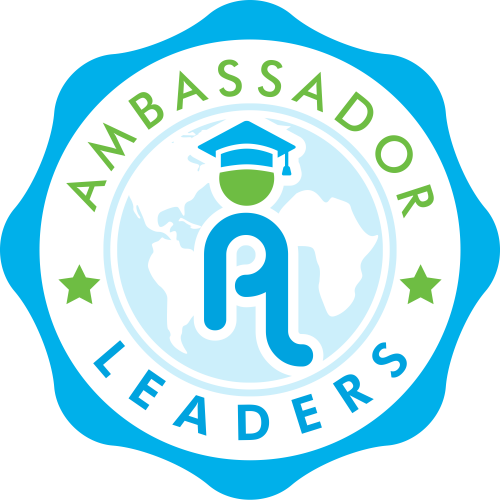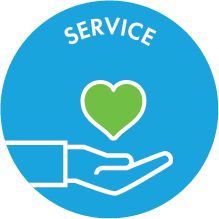Service is a way of life.
Today, we’re continuing our new series Foundations. Our foundational values are at the heart of all that we do, but it isn’t enough to share what they are. In this series, we’ll explore why we chose these five pillars and how we teach them to students. You can read the whole series here.
We embody this value in two ways. First, we are dedicated to giving every student a life-changing experience. To do so, our teacher leaders and staff act as service leaders, actively communicating with students and understanding their individual needs. Second, we empower students to lead through service of their own.
In the first Foundations entry, we explained how—by practicing service leadership—we prioritize our students’ ideas, experiences and feedback. Everyone from our CEO to our Summit staff and teacher leaders are committed to making the Summits a life-changing experience for our students. We take service to our families and students seriously, so when we say, “The people come first,” that isn’t a platitude. We absolutely mean it and work hard to find the best ways to provide exceptional service to our community.
However, we take this value beyond introducing service leadership to our students and practicing it ourselves. Learning the importance of community service is also an integral part of every Summit.
All Ambassador Leaders participate in a service learning project with our national partner United Way. This service learning activity begins with a budgeting simulation to help students recognize the financial difficulties faced by the local community members United Way works with and for. By completing this exercise, students better understand the hardships faced by many people across the US and the ways in which their own community service can help.
During the second half of the United Way service learning day, students create kits to send out into the community. Our students have assembled thousands of literacy kits, STEM kits, botany kits and health and wellness kits that United Way gives out to local children to facilitate enrichment and learning. In this way, our students give back to each Summit’s host community.
At the Ambassador Leadership Summits at Harvard, Yale and UCLA, the United Way service learning activity also provides a compelling example of how community action helps those in need and a source of inspiration for students’ capstone projects.
Using the Lead4Change curriculum, student teams create and present their own community action plans. The Lead4Change lessons guide students step-by-step through how to identify a community need, determine action steps and make a plan to get local non-profits and other stakeholders involved in realizing their vision.
The process of designing a community action plan is often a transformative experience for students. We know one thing for sure: our students are in tune with the issues faced by their communities—whether local, national or global—and they’re passionate about making a difference. Service is a value so many of our students bring with them to the Summit. Our aim is to inspire them to think BIG and to give them the tools to get started.
While service is its own reward, research suggests that service benefits those who serve as much as those who receive the assistance. This study from the University of Nebraska Omaha confirms what we witness each summer. Researchers found that service learning significantly positively affects students’ self-efficacy, leadership and academic performance. It’s also positively linked to students’ likelihood to continue serving their communities in the future and can even affect their career choices.
Our students echo this when they tell us that the service learning they did at their Summit made them more empathetic and empowered, feeling like they’re equipped to get involved when something needs fixing. That confidence—that belief that their contribution matters—its value can’t be overstated.
Too often the measuring stick for success is what we get or have. The value of service focuses instead on what we can give—to one another and to the world.
By Corie Bales
Corie is the Academic Affairs Manager of Ambassador Leaders. As a lifelong educator and avid traveler, she believes in empowering students and teachers to learn and lead through experiential education.





